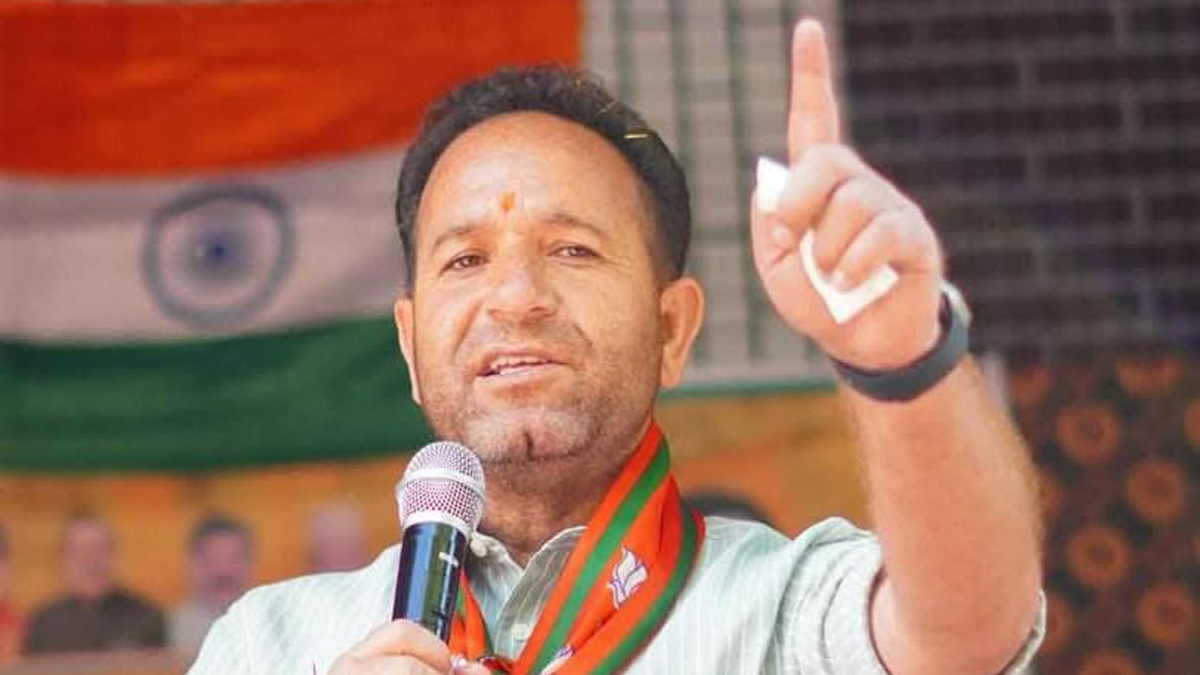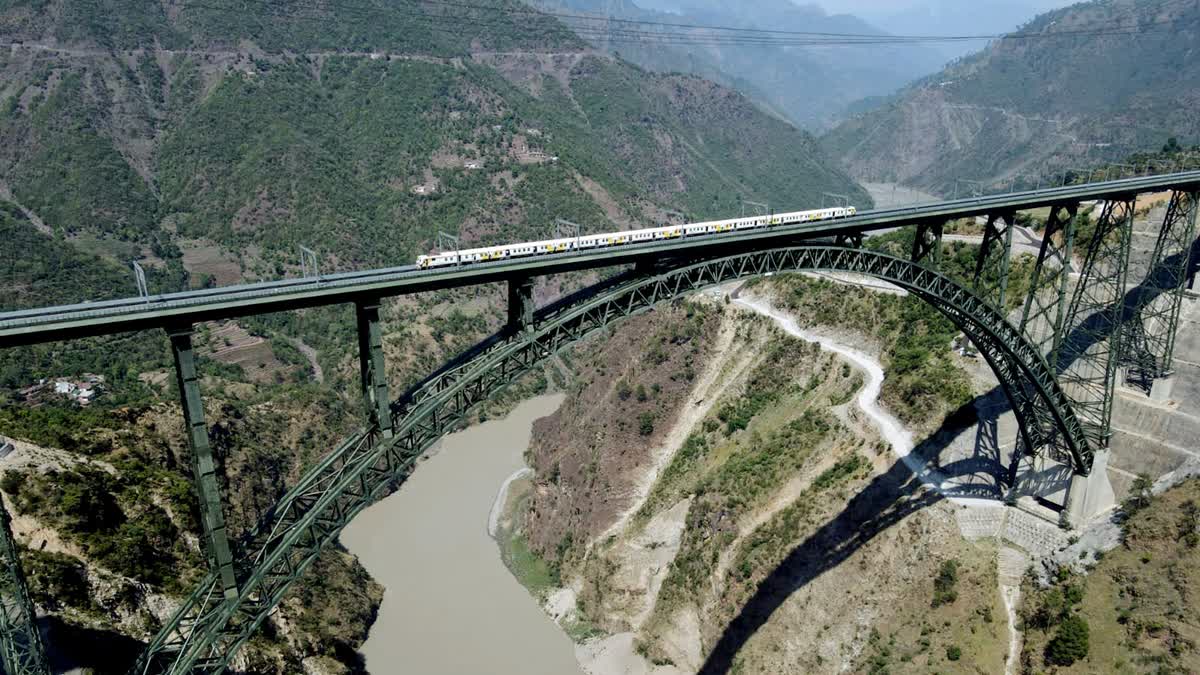A Surprising Convergence in Kashmir’s Political Landscape
By: Javid Amin | 01 Aug 2025
In a remarkable political turn, Sunil Sharma, the Leader of Opposition in the Jammu & Kashmir Assembly, made a bold statement that has ignited debate across the region: “If Omar Abdullah wants only statehood without Article 370, then we are on the same page.” This development suggests a softening of the BJP’s long-standing rigid stance on Jammu & Kashmir’s political status and has raised hopes, concerns, and questions alike.
This article will explore Sharma’s comments in depth, analyze their implications in the context of BJP’s broader strategy, reflect on the responses from the opposition, and assess how this evolving stance could shape the future of statehood in Jammu & Kashmir.
Historical Backdrop: From Special Status to UT Governance
To understand the weight of Sunil Sharma’s recent remarks, it’s crucial to revisit the historic transformation of Jammu & Kashmir:
-
August 5, 2019: The Central Government, led by BJP, revoked Article 370, which had granted special autonomy to Jammu & Kashmir.
-
The region was downgraded from a state to a Union Territory—a move hailed by some as an integrationist step, but criticized by many as a disempowerment of a people with a unique political identity.
-
Since then, the restoration of statehood has remained a top political demand, especially from parties like the National Conference (NC) and the Congress.
Sunil Sharma’s Statement: “Statehood Without Article 370”
Sunil Sharma, seen as a key BJP strategist in J&K, stunned political observers with the following statement:
“If Omar Abdullah is genuinely seeking only statehood without reviving Article 370 or glorifying symbolic days like July 13, then we are on the same page.”
What He Meant
-
Firm on Article 370: BJP considers Article 370 “buried forever.” Sharma reaffirmed this unambiguously.
-
Open to Statehood: The BJP is ready to restore “normal” statehood, provided no conditions like special status or commemorations (e.g., Martyrs’ Day) are attached.
-
Conditional Acceptance: Any restoration will only proceed after clearance from the Ministry of Home Affairs and security agencies, keeping national security concerns at the core.
This represents a significant narrative shift, especially in light of BJP’s earlier position that statehood can’t be discussed until “complete normalcy” returns.
A Calculated Political Shift: Why Now?
01 Internal and External Pressure
-
Rising protests, especially from the Congress under the “Hamari Riyasat, Hamara Haq” campaign, are gaining traction.
-
Ghulam Nabi Azad’s DPAP, Mehbooba Mufti’s PDP, and NC under Omar Abdullah have all upped their pitch for full statehood.
-
Even civil society groups, unemployed youth, and traders are increasingly vocal about the lack of representation and economic stagnation under UT governance.
02 BJP’s Dilemma
While the BJP enjoys control of the region administratively via the Lieutenant Governor, it has struggled electorally in the Valley. The restoration of statehood, sans Article 370, could help the BJP:
-
Regain some political goodwill,
-
Neutralize opposition rhetoric, and
-
Maintain its nationalist credentials without seeming autocratic.
Omar Abdullah’s Position: Dignified Statehood With History Intact
While Sharma seems to suggest Omar has softened, the NC leader has not explicitly disavowed Article 370. His recent statements, however, show a greater emphasis on “dignified statehood” and economic empowerment, possibly signaling tactical flexibility.
“We want restoration of what we had, yes. But we also want dignity, elections, and development,” Omar said in a recent rally.
BJP’s Challenge
The wordplay between “dignity” and “special status” leaves room for political interpretation. Sunil Sharma’s accusation was clear:
“He (Omar) is mincing words. He should stop misleading the people.”
In response, NC leaders accused BJP of trying to:
-
Rewrite Kashmir’s political history, and
-
Deflect blame for the ongoing governance failures and unemployment.
Reactions from the Political Spectrum
01 Congress: Unified Front or Political Opportunism?
Congress leader Tariq Karra responded swiftly, stating:
“BJP can’t play both sides. Either it restores democracy or admits it seeks permanent control.”
Congress has been leading statehood rallies under the banner “Hamari Riyasat, Hamara Haq”, framing the issue as a constitutional betrayal rather than an administrative restructuring.
02 Mehbooba Mufti and PDP
Mehbooba slammed both BJP and NC during PDP’s 26th Foundation Day, accusing them of:
-
Failing Jammu more than Kashmir post-Article 370,
-
Making false promises on jobs and electricity, and
-
Ignoring the growing drug crisis and economic despair in rural Jammu.
“They talk about restoring what they broke. But who’s accountable for the damage already done?”
Security Angle: MHA & Intelligence Agencies Still Hold the Key
Even if the BJP in J&K signals openness, real power lies with the Union Ministry of Home Affairs (MHA) and India’s security establishment.
Key Considerations:
-
Terror incidents, like the April 22 Pahalgam attack, are cited as reasons to delay statehood.
-
The AFSPA (Armed Forces Special Powers Act) is still in force, and central agencies play a major role in local policing.
Security experts warn:
-
“Statehood cannot be restored unless anti-national elements are fully neutralized.”
People’s Sentiment: Desire for Dignity, Economy, and Democracy
Whether in Jammu or Kashmir, the public sentiment across the UT is converging on a few core themes:
01 Representation
-
UT status has meant no elected government for over 5 years.
-
Youth feel excluded from political decisions that affect their future.
02 Economy
-
Unemployment is among the highest in India.
-
Small businesses are collapsing, and contracts often go to outsiders.
03 Identity
While many don’t demand the return of Article 370, there is still an emotional and political sense of betrayal.
“We don’t need Article 370. We need jobs, education, and electricity. But we also need respect,” says Junaid, a 27-year-old engineering graduate from Anantnag.
The Road Ahead: What Could Happen Next?
01 Assembly Elections First?
-
The Election Commission is yet to announce a date for J&K Assembly elections.
-
Some analysts believe the Centre may restore statehood before elections to project democratic intent.
02 Will Omar Compromise?
If NC does accept statehood without Article 370, it could:
-
Weaken separatist arguments, and
-
Bring NC closer to the Centre—a risky but potentially stabilizing move.
03 BJP’s Strategic Bet
By opening the door slightly, BJP:
-
Retains control over the final narrative,
-
Forces NC and PDP to clarify their stances, and
-
May garner moderate support in upcoming elections.
Bottom-Line: Between Restoration and Realignment
Sunil Sharma’s statement may seem like a small gesture, but in Kashmir’s political ecosystem, words matter immensely. The BJP’s openness to restoring statehood without special status might be the first real opening in years for political negotiation.
Yet, key questions remain:
-
Will opposition parties unite or divide over the terms of restoration?
-
Will the Centre allow power to return to local hands?
-
Can economic revival happen without political empowerment?
Jammu & Kashmir stands at a critical juncture—between restoration of democratic dignity and political recalibration under central oversight. What remains to be seen is whether all stakeholders, including Delhi, are willing to meet halfway for the sake of peace, progress, and people.



